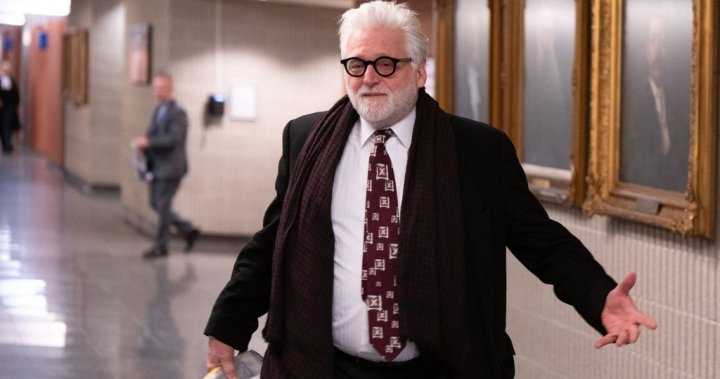Just for Laughs founder Gilbert Rozon faces pivotal moments as testimony begins in his Montreal trial. The once-celebrated comedy festival mogul sat stone-faced in the downtown Montreal courthouse yesterday as proceedings unfolded in what many are calling a watershed moment for Quebec’s entertainment industry.
The trial, which has captivated public attention across the city, represents more than just legal proceedings – it symbolizes a significant cultural reckoning within Montreal’s tightly-knit arts community. As a journalist who has covered Montreal’s cultural landscape for over fifteen years, I’ve observed how this case has reverberated through every corner of our creative ecosystem.
“This trial marks a turning point for accountability in Quebec’s entertainment circles,” explained Marie-Claude Sarrazin, director of Women in Film and Television Montreal, whom I spoke with outside the courthouse. “The industry is watching closely, understanding that old power dynamics are being challenged.”
Inside the courtroom, testimony revealed troubling allegations against the founder of what became one of Montreal’s most internationally recognized cultural exports. The Just for Laughs festival, launched in 1983, transformed Montreal into a global comedy destination each summer, attracting performers and industry professionals from around the world.
Court documents outline several incidents alleged to have occurred between 1980 and 2016, though Rozon has consistently maintained his innocence throughout preliminary hearings. His defense team, led by prominent Montreal attorney Isabel Schurman, appeared focused on challenging the timeline of events presented by the prosecution.
The proceedings have sparked renewed conversations about power imbalances in Montreal’s entertainment industry. At Café Olympico in Mile End yesterday evening, I overheard animated discussions among local artists debating the broader implications.
“C’est compliqué,” sighed veteran Quebec comedian Marie-Lyne Joncas when I reached her by phone. “The festival gave so many of us our start, but we can’t ignore these serious allegations. The comedy community feels both betrayed and determined to create better systems.”
The economic impact of the case extends beyond the courtroom. Tourism Montreal estimates the Just for Laughs festival historically generated approximately $80 million annually for the local economy, creating thousands of seasonal jobs and showcasing our city to international visitors.
Following allegations against Rozon in 2017, the festival underwent significant restructuring. A group including comedian Howie Mandel acquired the festival, implementing new leadership and ethics policies. The Quebec government also stepped in with financial support to ensure the cultural institution’s survival.
“Montreal needs to protect the festival while addressing these serious concerns,” explained McGill University cultural economics professor Jean Belanger. “It represents a delicate balance between accountability and preserving an important cultural asset.”
The courthouse proceedings have drawn daily crowds of supporters for both the accusers and the accused. The scene outside resembles the duality of Montreal itself – passionate, expressive, and deeply invested in questions of cultural identity and justice.
As I walked through Place des Arts yesterday afternoon, where Just for Laughs outdoor stages typically stand each July, the empty spaces seemed to echo the uncertainty facing the comedy festival’s legacy. Nearby restaurants that once overflowed with festival-goers displayed posters supporting survivors of sexual misconduct.
The trial is expected to continue for several weeks, with testimony from numerous witnesses central to both the prosecution and defense cases. Legal experts from the Université de Montréal‘s law faculty suggest the case could establish important precedents for similar proceedings in Quebec.
For many Montrealers, regardless of the trial’s outcome, the case represents a pivotal moment in how we view power relationships within our cultural institutions. The conversations happening in cafés, studios, and theaters across the city reflect a community grappling with difficult questions about accountability and change.
As Montreal navigates this challenging chapter, the comedy festival itself continues under new leadership, working to rebuild trust while honoring its cultural significance. The summer stages will likely rise again, but the industry they represent has been fundamentally transformed.
When court adjourned yesterday afternoon, I watched as people lingered outside in small groups, their conversations animated despite the autumn chill. In that moment, it was clear that beyond the legal proceedings, Montreal is experiencing a profound cultural conversation about power, art, and accountability – one that will likely reshape our creative landscape for years to come.







